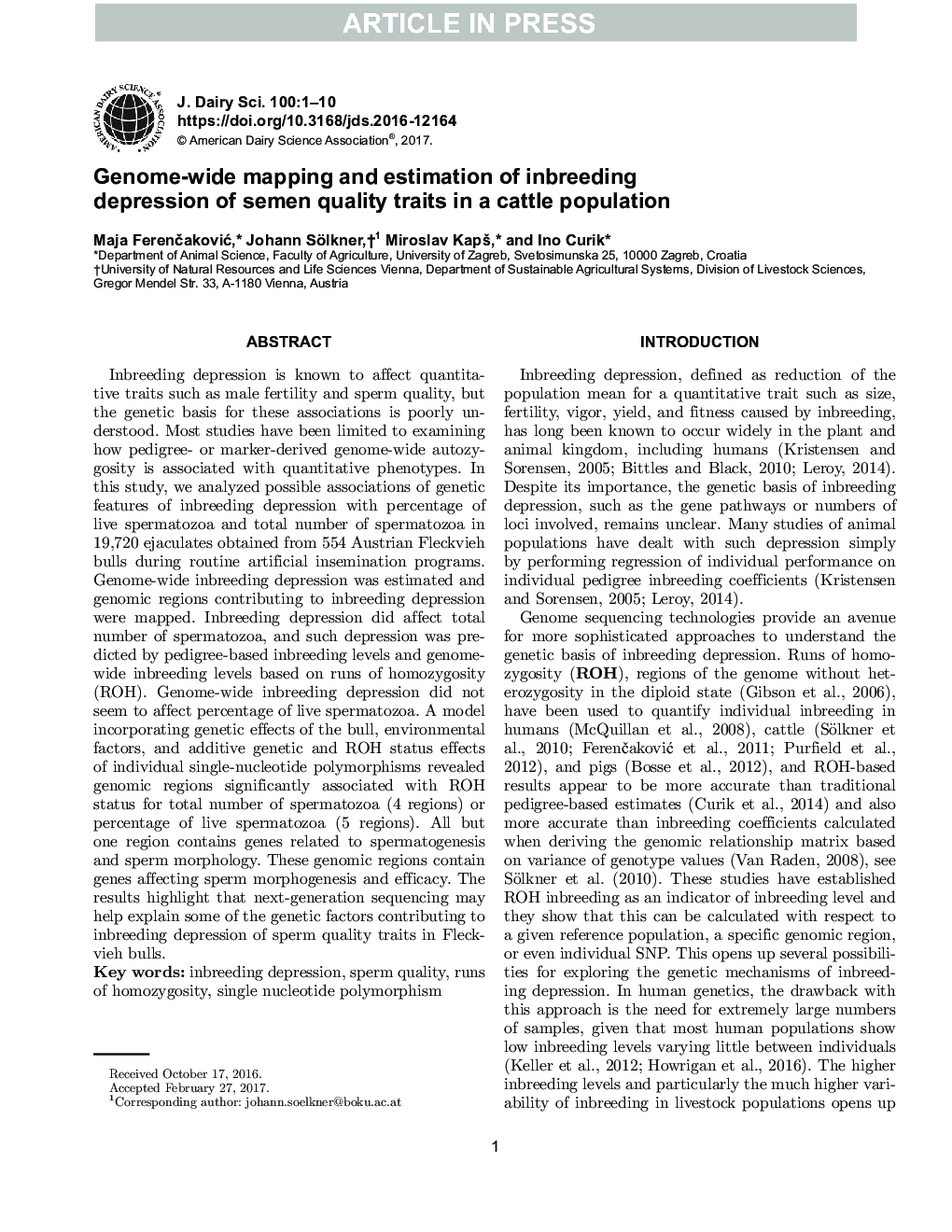| Article ID | Journal | Published Year | Pages | File Type |
|---|---|---|---|---|
| 5542264 | Journal of Dairy Science | 2017 | 10 Pages |
Abstract
Inbreeding depression is known to affect quantitative traits such as male fertility and sperm quality, but the genetic basis for these associations is poorly understood. Most studies have been limited to examining how pedigree- or marker-derived genome-wide autozygosity is associated with quantitative phenotypes. In this study, we analyzed possible associations of genetic features of inbreeding depression with percentage of live spermatozoa and total number of spermatozoa in 19,720 ejaculates obtained from 554 Austrian Fleckvieh bulls during routine artificial insemination programs. Genome-wide inbreeding depression was estimated and genomic regions contributing to inbreeding depression were mapped. Inbreeding depression did affect total number of spermatozoa, and such depression was predicted by pedigree-based inbreeding levels and genome-wide inbreeding levels based on runs of homozygosity (ROH). Genome-wide inbreeding depression did not seem to affect percentage of live spermatozoa. A model incorporating genetic effects of the bull, environmental factors, and additive genetic and ROH status effects of individual single-nucleotide polymorphisms revealed genomic regions significantly associated with ROH status for total number of spermatozoa (4 regions) or percentage of live spermatozoa (5 regions). All but one region contains genes related to spermatogenesis and sperm morphology. These genomic regions contain genes affecting sperm morphogenesis and efficacy. The results highlight that next-generation sequencing may help explain some of the genetic factors contributing to inbreeding depression of sperm quality traits in Fleckvieh bulls.
Related Topics
Life Sciences
Agricultural and Biological Sciences
Animal Science and Zoology
Authors
Maja FerenÄakoviÄ, Johann Sölkner, Miroslav KapÅ¡, Ino Curik,
